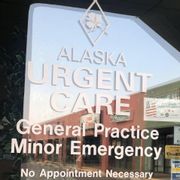
It's natural to feel under the weather and need rest occasionally. However, there may come a time when your symptoms need more than a day in bed. If you aren't feeling well, here are a few signs that indicate you need to see your health care provider.
How to Know If Your Illness More Than Just a Cold
1. High Fever
A slight temperature is normal for a cold; however, a fever of 101 degrees Fahrenheit or higher indicates an acute bacterial or viral infection, like influenza, pneumonia, bronchitis, or strep throat. While a fever isn't inherently harmful because it's the body's way of defending itself, individuals with compromised immune systems have an increased risk of illness and related-fever symptoms. Some autoimmune diseases, such as fibromyalgia, increase feverish feelings because of heightened sensitivity to pains and aches.
2. Nausea & Vomiting

Colds generally don't include nausea and vomiting symptoms. Gastrointestinal issues typically come with more serious conditions, including food poisoning, viral gastroenteritis, Crohn’s disease, and irritable bowel syndrome.
Adults rarely vomit unless they're experiencing these issues, though pregnancy and hangovers also cause symptoms. Since intense, repeat vomiting risks severe, life-threatening dehydration from lost fluids, it's important to determine the exact cause and receive treatment.
3. Lingering Symptoms
The common cold will go away in three to five days with ample water and rest. If your symptoms worsen and last longer than this time frame, you may have a viral infection. Track your symptoms throughout the recovery, keeping a detailed log of how you're feeling. This will help the health care team understand what's happening to your body.
4. Chills
Common colds don't come with periodic or constant chills. This sensation typically indicates a viral or bacterial infection, like influenza, meningitis, strep throat, or pneumonia. The symptom is often an early warning sign because muscles shake from protective cells combating the infection or chemicals released by invading pathogens. However, you can also experience chills later in the infection from surging viral loads, as well as muscle aches from your body fighting the illness.
If you're experiencing these symptoms, turn to Alaska Urgent Care in Anchorage. These health care providers will assess your condition to make a diagnosis, then create a custom treatment plan to restore your well-being. Get more information about their services online, or call (907) 341-7757 to make an appointment.
About the Business
Have a question? Ask the experts!
Send your question

